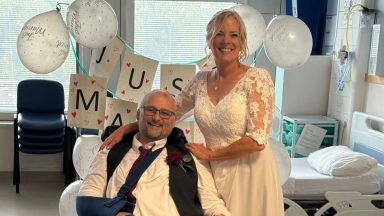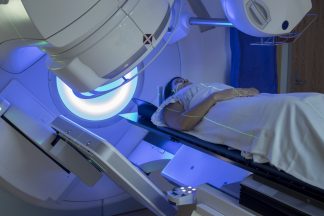A decision to approve new medicines to treat Duchenne muscular dystrophy and a rare life-threatening blood disease for use in NHS Scotland has been welcomed by patient groups.
Three new drugs have been approved to treat anaemic patients suffering from Paroxysmal nocturnal haemoglobinuria, estimated to impact 1.59 people per 100,000 in the UK, with 38 patients treated in Scotland between April 2023 and March 2024.
The condition leads to red blood cells being destroyed by part of the immune system, causing anaemia, fatigue, blood clots and kidney disease.
The Scottish Medicines Consortium (SMC) approved the drugs for use by NHS Scotland.
Crovalimab (sold under the brand name PiaSky) is used for patients who are 12 years or over, and can be given at home using an injection after an initial intravenous drip, and was hailed by pharmaceutical company Roche Products which praised “collaboration and support” during research.
The SMC also approved danicopan (brand name Voydeya) to treat the disease in adults when used together with other medicines, and iptacopan (brand name Fabhalta), to be used by adults on its own.
The SMC also approved a new drug for Duchenne muscular dystrophy in patients aged four years and older, vamorolone (brand name Agamree), which was approved by the National Institute for Health and Care Excellence last month for the use in England.
Duchenne muscular dystrophy is a rare genetic disorder that causes muscle weakness and loss of function, impacting 2,500 boys and men in the UK, and the new drug provides an alternative to corticosteroids, which have side-effects including weight gain and mood changes.
Dr Kate Adcock, director of research and innovation at Muscular Dystrophy UK, said it was “potentially life-changing”.
Dr Adcock said: “We’re proud to have played a key role in ensuring vamorolone is available for children with Duchenne through NHS Scotland.
“We heard first hand about the dilemma that faces families when it is recommended that their child starts taking corticosteroids.
“The associated side-effects, including weight gain, bone weakness and mood changes, cause huge concern and the community shared powerful testimony about the benefit that an alternative treatment option would bring.
“To now have the treatment available is a great step forward and potentially life-changing.”
Alexa Urspruch, Roche Products UK lead for rare diseases said: “We are delighted with today’s news that eligible patients in Scotland will now be able to access PiaSky (crovalimab) on the NHS.
She said the drug “belongs to a class of medicines recognised as the standard of care for people living with PNH”.
She added: “This access was only possible thanks to great collaboration and support across the PNH community.”
Four other drugs were approved, including a treatment for endometriosis in adult women of reproductive age, Relugolix/estradiol/norethisterone (brand name Ryeqo); as well as a drug for the treatment of adults with moderate to severe ulcerative colitis, risankizumab (Skyrizi).
Multiple sclerosis patients were given hope with the approval of ublituximab (brand name Briumvi) for the treatment of adults suffering relapsing forms of the neurological condition.
Sirolimus gel (brand name Hyftor) was accepted as a treatment for facial angiofibroma, a non-cancerous skin tumour on the face that is caused by a rare genetic condition called tuberous sclerosis complex, to be used in patients aged six years and older.
The SMC will conduct a further review on a drug for a rare condition which causes brain damage, with an ultra-orphan initial assessment report published for fosdenopterin (brand name Nulibry) a treatment for molybdenum cofactor deficiency Type A.
The Scottish Government will confirm when fosdenopterin is available for prescribing and further evidence will be gathered. Following this, SMC will review it and decide on routine availability in NHS Scotland.
SMC chair Dr Scott Muir said: “The committee is pleased to be able to accept these new medicines for use by NHS Scotland.
“We heard powerful testimony from patient groups about the impact of Duchenne muscular dystrophy on patients and families. Vamorolone will provide an alternative to corticosteroids, providing choice for clinicians and patients.
“Patient group representatives shared the substantial additional impact that facial angiofibromas can have on patients with tuberous sclerosis complex, and the expected benefits that sirolimus, as the first licensed topical gel, could bring.”
Follow STV News on WhatsApp
Scan the QR code on your mobile device for all the latest news from around the country


 PA Media
PA Media




















